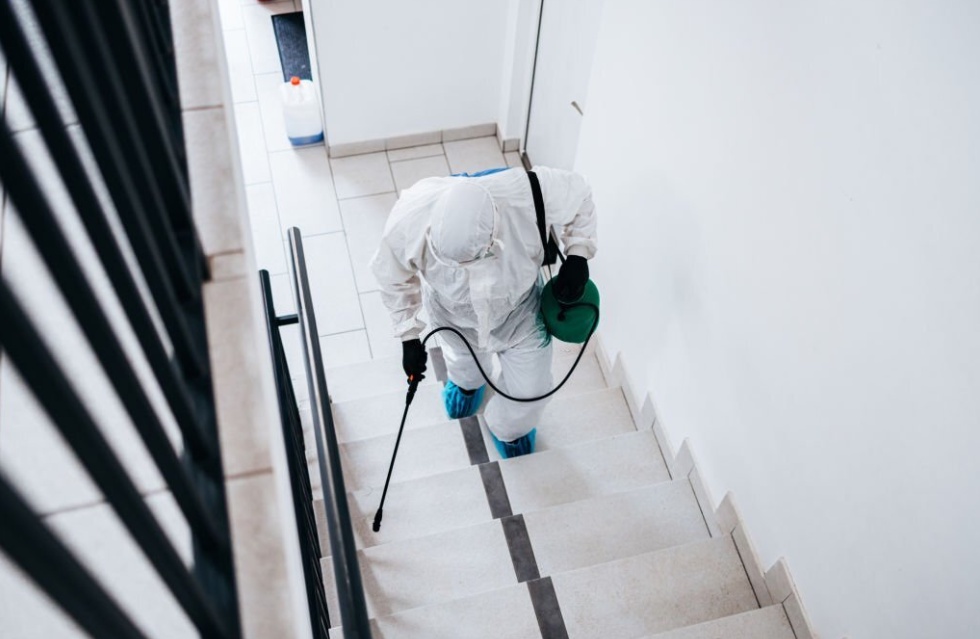A pest invasion in your home can quickly turn into a nightmare, posing health risks and causing damage to your property. Pests such as insects, rodents, and other unwanted creatures can find their way into your living spaces, creating discomfort and anxiety for your family. Preventing and managing pest infestations are essential steps to protect your home and loved ones. In this blog, Carpet Cleaning Beaconsfield will explore effective methods to safeguard your home from these unwanted guests and ensure a pest-free living environment.
Common Household Pests
Before we delve into prevention and control strategies, let's identify some of the most common household pests:
-
Ants: These tiny insects can form colonies in and around your home, searching for food and water.
-
Cockroaches: Cockroaches are nocturnal pests that thrive in warm and humid environments, and they can spread diseases and trigger allergies.
-
Rodents: Rats and mice are notorious for causing damage to property, contaminating food, and carrying diseases.
-
Spiders: While most spiders are harmless, some species like black widows and brown recluses can be venomous and pose health risks.
-
Bed Bugs: Bed bugs feed on blood and can infest bedding, mattresses, and furniture, causing itchy bites and sleepless nights.
Prevention Techniques
1. Seal Entry Points
Inspect your home for cracks, gaps, and openings that pests can use to enter. Seal these entry points with caulk or weather-stripping.
2. Keep a Clean Home
Regularly clean your home, including floors, countertops, and appliances, to remove food crumbs and spills that attract pests.
3. Store Food Properly
Keep food in airtight containers, and avoid leaving food out in the open. This helps prevent attracting pests like ants and cockroaches.
4. Maintain Outdoor Spaces
Trim bushes, trees, and shrubs away from your home's exterior. Store firewood away from the house and ensure proper drainage to reduce moisture around the foundation.
5. Dispose of Trash Properly
Use tightly sealed trash cans and dispose of garbage regularly to deter pests from scavenging for food.
6. Fix Plumbing Leaks
Fix any plumbing leaks to prevent moisture build-up, which attracts pests like cockroaches and silverfish.
7. Install Screens
Use screens on doors and windows to keep flies, mosquitoes, and other flying insects out of your home.
8. Pet Food Storage
Store pet food in sealed containers and avoid leaving food bowls out for extended periods, as they can attract pests.
DIY Pest Control Methods
1. Natural Repellents
Use natural repellents like peppermint oil, vinegar, or lemon to deter ants, spiders, and other insects.
2. Boric Acid
Boric acid can be an effective insecticide for ants, cockroaches, and silverfish when applied in areas where pests frequent.
3. Traps
Use non-toxic traps to catch rodents and insects without resorting to chemical treatments.
Seeking Professional Pest Control
In some cases, professional pest control services may be necessary:
-
Severe Infestations: Professional pest control can effectively address severe infestations that DIY methods may not resolve.
-
Specialized Treatments: Certain pests, such as termites and bed bugs, require specialized treatments best handled by experts.
-
Long-Term Prevention: Pest control professionals can implement preventive measures to reduce the likelihood of future infestations.
Conclusion
Protecting your home and family from unwanted pests is essential for a healthy and comfortable living environment. By implementing preventive measures, using natural repellents, and addressing infestations promptly, you can keep pests at bay and safeguard your property. In severe cases, seeking professional pest control can ensure a comprehensive and long-term solution. By staying vigilant and taking proactive steps, you can enjoy a pest-free home and peace of mind for you and your loved ones.
FAQs
-
Q: Are pest control chemicals safe for children and pets?
A: Some pest control chemicals can pose risks to children and pets. Always follow the instructions and keep them out of treated areas until it's safe.
-
Q: How can I identify a termite infestation?
A: Look for mud tubes, discarded wings, and damaged wood around your home as signs of a termite infestation.
-
Q: Can DIY pest control methods be effective for severe infestations?
A: DIY methods can be effective for minor infestations, but severe infestations may require professional intervention.
-
Q: What are the health risks of cockroach infestations?
A: Cockroach infestations can trigger allergies, exacerbate asthma, and spread diseases like Salmonella.
-
Q: Are ultrasonic pest repellers effective?
A: The effectiveness of ultrasonic pest repellers is debated, and they may not be sufficient as the sole method of pest control.


No comments yet